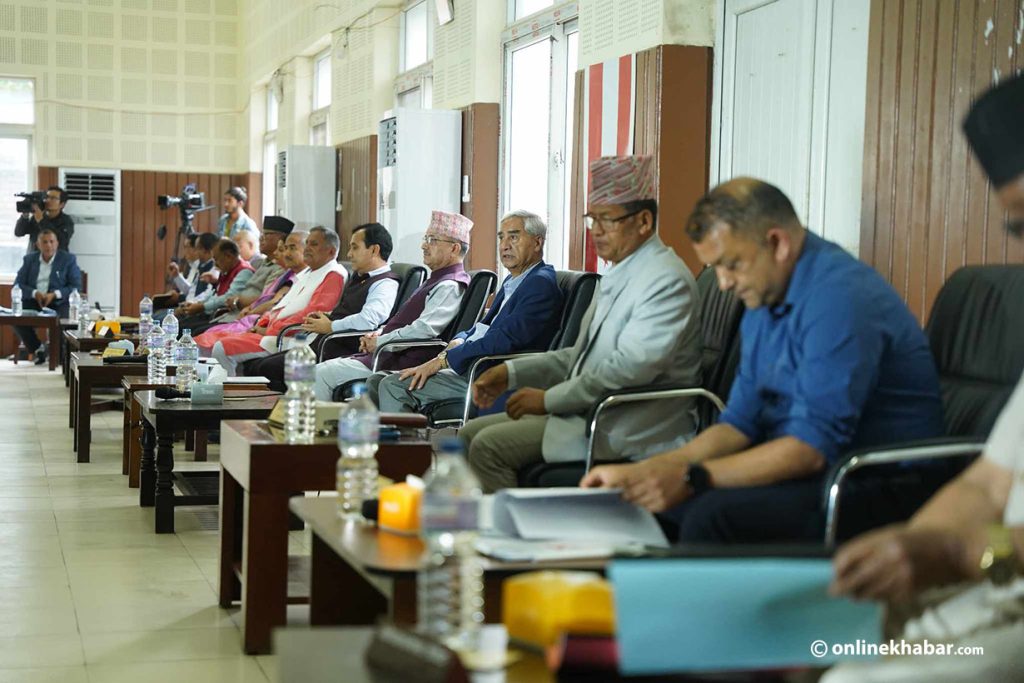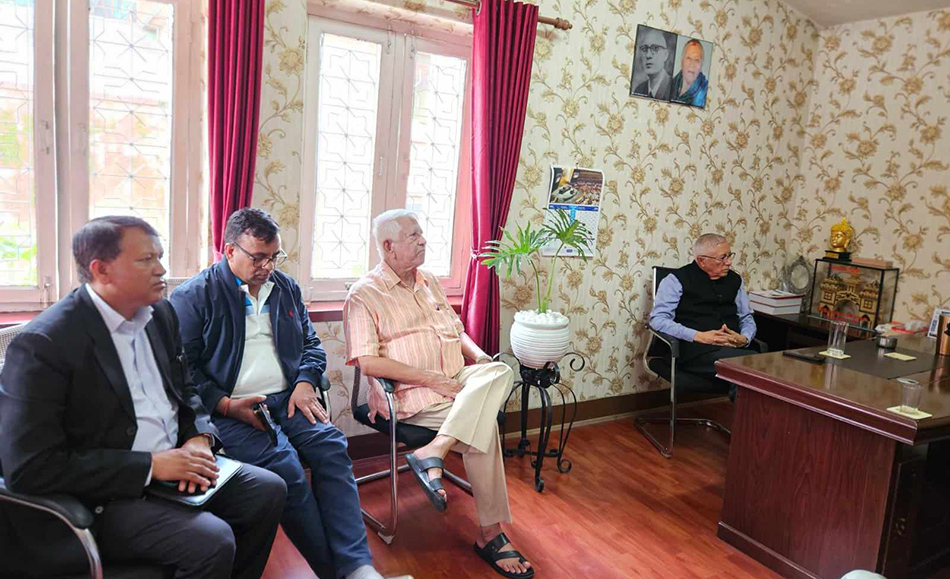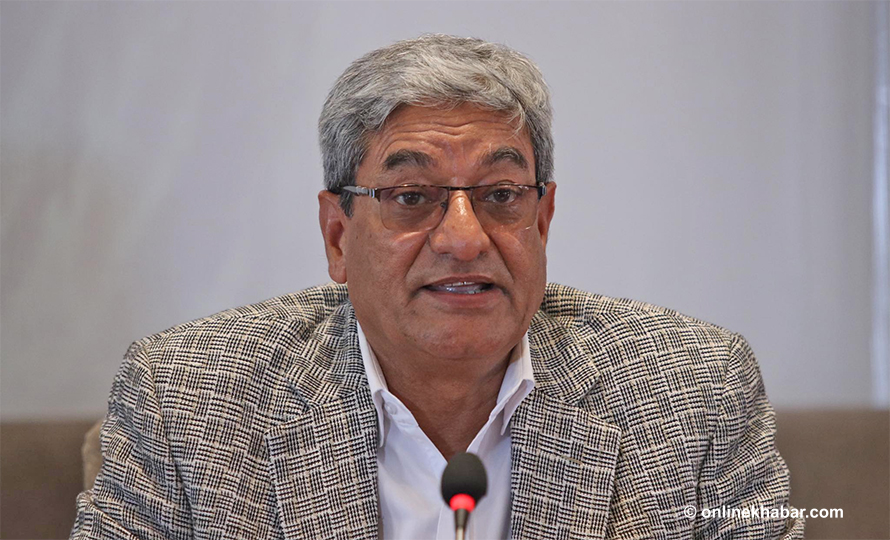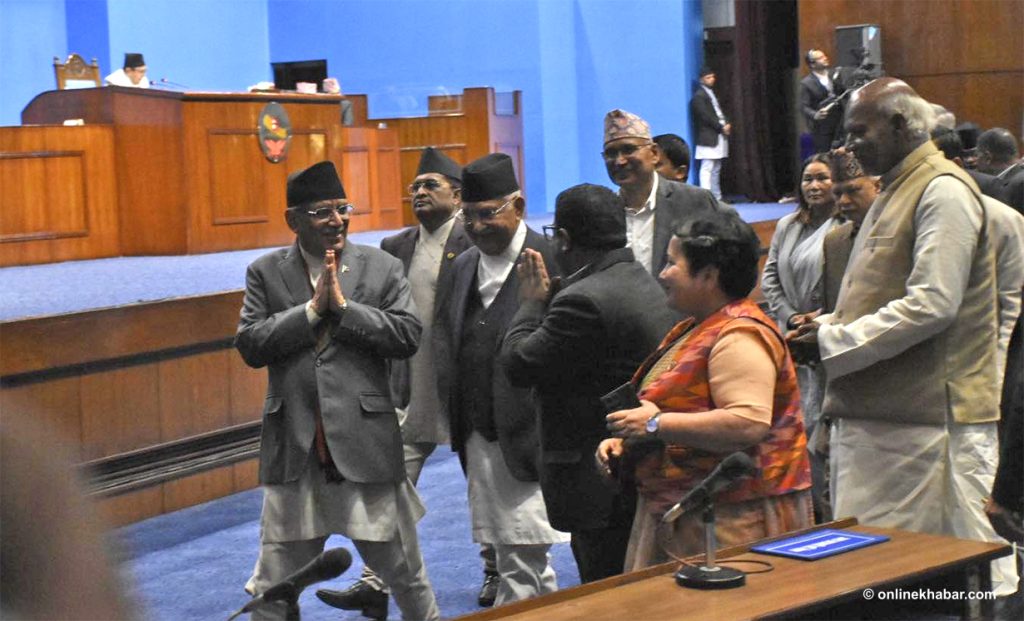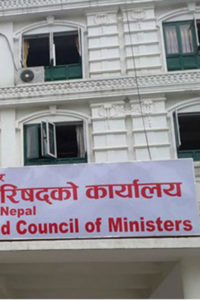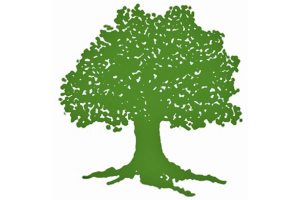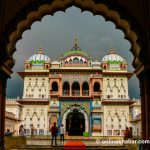
Though the government has already withdrawn two controversial ordinances issued last Monday owing to widespread protests, they have ignited a new round of political tension in the country when the country is fighting the global coronavirus outbreak. Therefore, Nepali Congress leader Krishna Prasad Sitaula thinks that Prime Minister KP Sharma Oli has added a ‘political virus’ to the country.
Sitaula, who had played an instrumental role in drafting the 2015 constitution, has recently spoken to Onlinekhabar about recent political situations.
Excerpts:
What is your opinion about the ordinances brought by the government? Why did the Nepali Congress oppose them?
The whole country is fighting against the coronavirus epidemic. All businesses of the Nepali people are closed. It is not possible to hold even a small gathering. The social and economic condition of the country is becoming more and more critical day by day. The two ordinances that came by deceiving Parliament when the nation was in such a difficult situation are contrary to the spirit and emotion of the constitution.
What is even more serious to me is that at this time, it is the responsibility of the prime minister to unite the whole country. The decision of issuing these ordinances has hurt the hearts of many democrats among the political parties, in civil society.
Therefore, no one can support these current ordinances from the constitutional point of view and from the political point of view.
However, the prime minister argued that the Constitutional Council Ordinance was necessary and brought because the main opposition leader did not let the council work.
The functions, duties, and rights of the Constitutional Council as mentioned in the constitution demand consensus. The provision of having heads of the House of Representatives and the National Assembly, the leader of the main opposition party, and even the head of the judiciary is a system that represents not only one government, but the entire state.
The ordinance of the Constitutional Council has been brought in such a way that the Constitutional Council does not represent the state, but only the prime minister. Therefore, an attempt was made to bring the Constitutional Council under the prime minister. This was very wrong; this was not the spirit of the constitution.
The spirit of the constitution is that the whole of parliament, the government, and the judiciary should work together.
The Prime Minister has been complaining for a long time that the officials of the constitutional bodies could not be appointed due to the non-cooperation of the opposition leader, Sher Bahadur Deuba, due to the provision of consensus. Has the opposition leader troubled the PM?
I don’t think so at all. The prime minister convenes the meeting and others join. When did such an incident take place? When did not the opposition leader go to the meeting? The prime minister has not said that clearly.
We do not have any policy of non-cooperation. We want the Constitutional Council to make decisions in consensus. Even if there was no consensus, the decision could have been taken by a majority.
The success of the prime minister is to unite the Constitutional Council and appoint the office bearers of the constitutional bodies. The heads and members of the constitutional bodies should represent the whole state, not the prime minister.
However, the prime minister has accused the opposition, Nepali Congress, of not cooperating in the appointment of the heads and members of the constitutional bodies…
This is very wrong. Even just a few days back, the Nepali Congress had invited and had discussions with the Samajwadi Party, the RJPN, and the RPP at our party office. All the leaders and friends of other parties had also come. Why is there a need for a law to split any party at this time? The prime minister should be sincere that his party should be united and the opposition parties should also be united. We have to think that even small parties should also stay united.
The unity of political parties gives political stability. The division of political parties pushes the country towards instability. The government itself is trying to create instability now.
Another issue is: why did he violate the constitution in the law related to the Constitutional Council? Why did he make such a mistake? Why did he bring such a serious issue from the ordinance? Why is he in such a hurry? Why was the enacted done within an hour without even keeping it in the Office of the President for a day?
You have been close to Prime Minister KP Oli. You also represent the same district. How does he think of or plan such decisions?
It is not only that we represent one district, but in the entire national politics, we sat together and made the constitution. We also started people’s movement together. I am also a person who has been involved in the peace process. Oliji was the deputy prime minister in Girija Prasad Koirala’s cabinet and I was the home minister. We have a long association.
I am a well-wisher of KP Oli. But looking at his work, none of our good wishes are coming true. We want this government to succeed in the sense that it strengthens the constitutional order. Do enough work in the interest of the nation. Let the country be united.
Now that the country is fighting against the coronavirus. The prime minister can lead the way in uniting all political parties, civil society, and the nation as a whole. This is what we want. But, he added another great political tragedy while the people were in such a great tragedy. This political virus was added here at the time when the entire nation had to unite and fight against the coronavirus. This was a political virus over democracy. We are very concerned about this.
We have always wished the government best of luck in working for the benefit of Nepal and the Nepali people by uniting the entire nation in every aspect. But today, we are very sad. We are deeply saddened by the government’s efforts to tear apart national politics.
Let’s talk about the coronavirus instead of the political virus. How is the Nepali Congress looking at the steps taken by the government against the epidemic?
I can see that the people who have come to Kathmandu from outside the valley to work here are having a hard time now. Many people are walking away from here for 10 days. The government should be able to look after the very poor.
If people want to go to their homes outside Kathmandu, arrangements should be made to reach their homes. They should be able to get their health checked at the local level.
In addition, there have been complaints that the central, provincial, and local governments have not been impartial in distributing relief materials. Complaints have come from all quarters that it was not enough and it was not fair. The government should pay serious attention to this. By including all the political parties at the local level, the workers, small peasants, and poor people should be taken care of without any bias. Those who do not have food at home, do not have the opportunity to work for a daily wage, should be able to pay attention to them.
Third, health workers have complained that there are not enough kits available for testing, and not enough PPE sets. The government should pay serious attention to ensure that quality materials are delivered to every government hospital and the coronavirus tests get expanded as a campaign.
Similarly, many Nepalis have come to the Indian border and are stuck on the other side. We should be able to bring them back to their homeland, set up a quarantine site in their municipalities and keep them for 14 days, and arrange for them to reach their homes after undergoing a health check-up. The government should be able to pay attention to this as well.
Today, I would like to urge the government to perform at its highest level. Number one, especially in the field of health examination. Number two, in the field of quality materials provided to health workers.
Patients suffering from diseases other than Covid-19 are no longer being treated in hospitals. The government needs to pay attention to this as well. Many private hospitals are now on the verge of closure. Doctors and nurses are afraid to examine the patients, and the government needs to pay serious attention to this.
What I want to say is that the government should not think that the only solution lasts long. The government should start thinking of alternative solutions from today itself.
It has become clear that the coronavirus epidemic will have a negative impact on the world economy and politics. This affects Nepal. It is having a far-reaching negative impact on Nepal’s economy. Industries, factories, and hotels are closed. The tourism business is completely closed. The government should be able to take up special rescue and relief programmes for the entrepreneurs on these overall issues. In this regard, the government should be able to manage additional funds. For this, the government should unite the entire nation, uniting the entire parliament, and all the political parties. I think it is necessary to bring in a relief budget of around Rs 2 trillion to save the economy as a whole.
Democracy is a matter of concern to the general Nepali people. It is a matter of their prosperity. Therefore, we should work for the prosperity of the general Nepali people without any bias. He should be able to work in the interest of the general Nepali people by uniting the entire nation.
There are also allegations that the government has become arbitrary due to the weak role of the main opposition, Nepali Congress.
Especially in the days during the coronavirus epidemic, we have tried to go together. However, looking at the activities of the government, it is time to start a movement right now because of these two ordinances.
The country is in lockdown. How do you think that parliament can function smoothly during this time? What is your suggestion to the speaker?
At this time, there should not be any majority-minority division in parliament; it should be united. And, we should not deceive parliament. We should make arrangements for the next session. However, there should be provisions of regular health checkups of the lawmakers.




